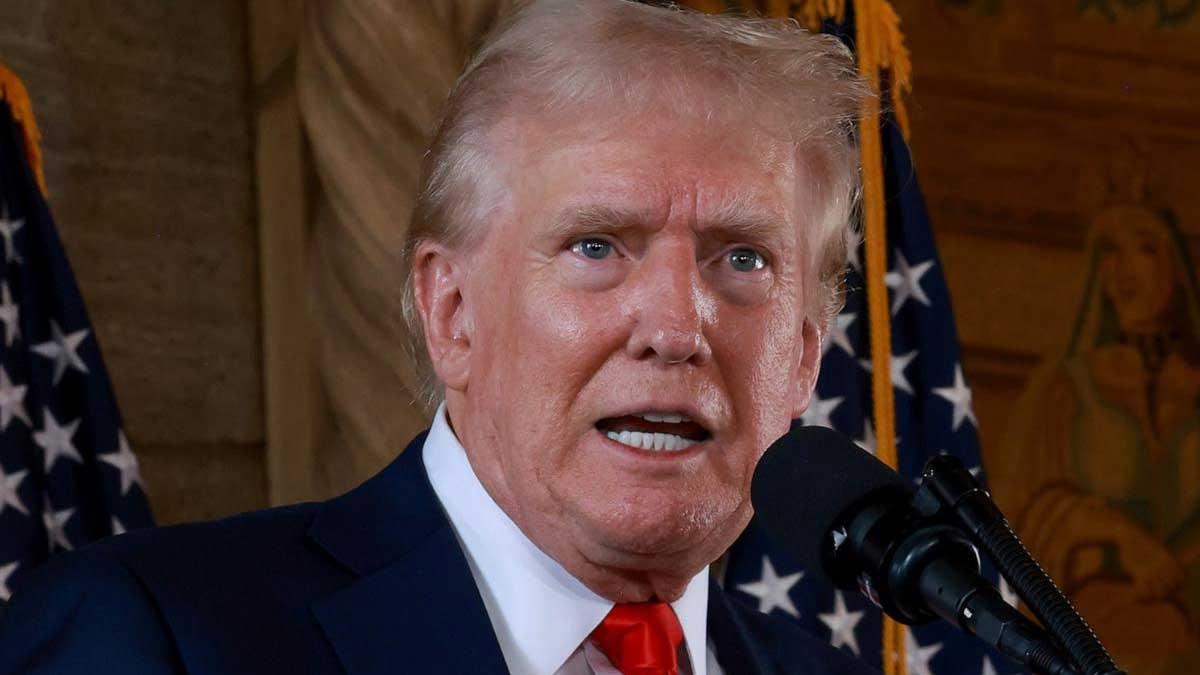- Home
- Billionaires
- Investing Newsletters
- 193CC 1000
- Article Layout 2
- Article Layout 3
- Article Layout 4
- Article Layout 5
- Article Layout 6
- Article Layout 7
- Article Layout 8
- Article Layout 9
- Article Layout 10
- Article Layout 11
- Article Layout 12
- Article Layout 13
- Article Layout 14
- Article Sidebar
- Post Format
- pages
- Archive Layouts
- Post Gallery
- Post Video Background
- Post Review
- Sponsored Post
- Leadership
- Business
- Money
- Small Business
- Innovation
- Shop
Recent Posts
Trump Questions ABC Debate with Harris Over Mic Rules

Former President Donald Trump is expressing significant reservations about participating in the forthcoming debate with Vice President Kamala Harris, scheduled to air on ABC News. The conflict centers around a contentious debate rule: whether microphones should be muted when candidates are not speaking. Trump’s criticism, conveyed through a Truth Social post on Sunday, highlights his dissatisfaction with ABC News. He denounced the network for what he perceived as a biased interview with Senator Tom Cotton, R-Ark., earlier that day. Trump characterized the network’s commentators as a “Panel of Trump Haters,” suggesting that their perceived bias could undermine the fairness of the debate.
The core issue causing friction between the two campaigns is the management of microphones during the debate. Harris’s campaign, represented by adviser Brian Fallon, has expressed a preference for leaving the microphones unmuted throughout the debate. This stance is based on concerns that Trump might engage in disruptive or uncontrolled outbursts, which they believe could be managed better with open microphones. Fallon’s position is supported by an unnamed source who contends that this approach would help maintain a more orderly and substantive discussion.
Trump’s campaign, however, holds a different view. Trump’s campaign adviser, Jason Miller, has indicated a desire for the debate to adhere to the same rules previously agreed upon with the Biden campaign. This includes the rule of muting microphones when candidates are not actively speaking. Miller’s stance reflects a preference for consistency and predictability in debate formats, which contrasts sharply with Harris’s campaign’s request for open microphones.
Adding to the complexity, Miller has also accused Harris’s team of requesting a seated debate format with notes and opening statements—a claim that Fallon has strongly denied. Fallon asserts that all parties, including Trump, Harris, and ABC News, had already agreed on a standing format with no notes, and that there were no additional demands from Harris’s camp. This dispute over the format and rules reflects deeper tensions between the two campaigns and highlights the challenges of negotiating debate terms.
Trump’s decision to agree to debate Harris on ABC News came after a period of hesitation. Initially, Trump had expressed reluctance and was considering debating on Fox News instead, with a preference for a full arena audience. His eventual agreement to the ABC News debate was seen as a critical step, as it marked a shift from his previous indecision and commitment to the debate schedule.
A surprising twist in this situation is Trump’s prior stance on debate rules. During the 2020 presidential election, Trump’s campaign criticized the Commission on Presidential Debates for its decision to mute microphones during the second debate. This decision was a response to Trump’s frequent interruptions during the first debate, and his campaign’s opposition to it underscores his broader dissatisfaction with debate regulations.
Several key details about the upcoming debate remain unresolved. Questions about the debate’s location, the choice of moderator, and the presence of a live audience are still unanswered. Previous agreements between Biden and Trump included rules such as no live studio audience and muted microphones when candidates were not speaking. Trump has voiced a preference for deviating from these rules, expressing a desire for a debate with a full audience on Fox News, highlighting his preference for a more dynamic and engaging format.
In terms of additional debates, Trump initially indicated an agreement for a debate on Fox News on September 4, with the ABC News debate scheduled for September 25. However, his campaign later clarified that the ABC News debate would be held on September 10, and that NBC News would host the debate on September 25. Harris has only confirmed her participation in the September 10 debate, leaving the September 25 debate’s details and confirmation uncertain. An NBC spokesperson has noted that the proposed date for their debate is not yet official, and discussions with both campaigns about various dates are ongoing.
Harris has responded to Trump’s commitment to the September 10 debate with a mix of optimism and cautious expectation. She expressed satisfaction with Trump’s agreement and voiced anticipation for the debate, while also indicating openness to scheduling additional debates if feasible. This response underscores Harris’s willingness to engage in further debate negotiations and her readiness to face Trump in the upcoming debate.
The vice presidential debate is scheduled for October 1, hosted by CBS. This debate will provide an additional platform for Harris and her running mate to engage with their opponents, adding another layer of complexity to the debate landscape.
This ongoing debate negotiation reflects broader shifts in the electoral landscape. Trump’s debate with President Joe Biden on June 27 marked a pivotal moment, leading to Biden’s decision to withdraw from the race and endorse Harris as his successor. Since then, Harris has made significant strides in the polls, often surpassing Trump in various polling averages. Trump’s agreement to debate Harris on ABC News comes after his earlier claim that his previous debate arrangements with Biden had been “terminated,” signaling the evolving dynamics of the presidential race and the critical importance of the upcoming debates.
Recent Posts
Categories
- 193cc Digital Assets2
- 5G1
- Aerospace & Defense44
- AI32
- Arts3
- Banking & Insurance11
- Big Data3
- Billionaires230
- Boats & Planes1
- Business309
- Careers13
- Cars & Bikes66
- CEO Network1
- CFO Network17
- CHRO Network1
- CIO Network1
- Cloud10
- CMO Network18
- Commercial Real Estate7
- Consultant1
- Consumer Tech157
- CxO1
- Cybersecurity54
- Dining1
- Diversity, Equity & Inclusion4
- Education7
- Energy8
- Enterprise Tech29
- Events11
- Fintech1
- Food & Drink2
- Franchises1
- Freelance1
- Future Of Work2
- Games135
- GIG1
- Healthcare75
- Hollywood & Entertainment158
- Houses1
- Innovation37
- Investing2
- Investing Newsletters4
- Leadership65
- Lifestyle10
- Manufacturing1
- Markets20
- Media184
- Mobile phone1
- Money13
- Personal Finance2
- Policy544
- Real Estate1
- Research6
- Retail1
- Retirement1
- Small Business1
- SportsMoney24
- Style & Beauty1
- Success Income1
- Taxes2
- Travel10
- Uncategorized6
- Vices1
- Watches & Jewelry2
- world's billionaires200
Related Articles
Musk and Ramaswamy Push $2 Trillion Federal Cuts via DOGE
Billionaires Elon Musk and Vivek Ramaswamy, co-leads of the Trump administration’s proposed...
By 193cc Agency CouncilNovember 23, 2024Alphabet Shares Fall 5% as DOJ Seeks Chrome Sale
Shares of Alphabet, the parent company of Google, dropped more than 5%...
By 193cc Agency CouncilNovember 22, 2024Carr’s FCC Nomination and Musk’s Potential Gains
President-elect Donald Trump has nominated Brendan Carr to lead the Federal Communications...
By 193cc Agency CouncilNovember 19, 2024Musk Joins Trump’s Call with Ukraine’s Zelensky
Billionaire Elon Musk played an unexpected role in a call between President-elect...
By 193cc Agency CouncilNovember 9, 2024















Leave a comment